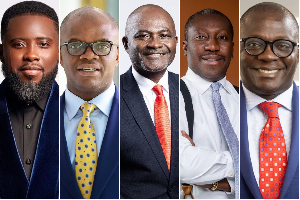Kwame Ansah, Head of Payment System Oversight at the Bank of Ghana (BoG), says e-zwich payment system is not functioning as expected because of the lack of infrastructure needed to make it work.
He said, “Unfortunately, the e-zwich has not done well mainly because at the time that BoG was advertising and getting people to be interested in the system, the necessary infrastructure like the point of sale terminals (POSs) and ATMs had not been adequately put in place.”
In 2008, the BOG rolled out the e-zwich, a national payment and settlements system that was meant to create an electronic clearing house for all banking and financial institutions, as well as biometric smartcard for paying for goods and services.
The POS and ATMs across the country were supposed to support the system, but unfortunately the platform encountered challenges due to consumer’s inability to access the POSs.
Mr. Ansah however noted that the Ghana Interbank Payment and Settlement Systems (GhIPSS), the body set up to, among other things, set up and operate the national switch with smartcard payment system, had imported some POS devices and ATMs to promote interoperability.
“We are hoping that not too far from now, the e-zwich is going to take off in a better way,” he reiterated.
Mr. Ansah was speaking at the MTN Mobile Money roundtable discussion in Accra.
The programme, which forms part of activities to mark the MTN Mobile Money Month celebrations, was on the theme: “towards building a cashless economy in Ghana – prospects, challenges and way forward.”
Kofi Bentil, Vice-President, IMANI Ghana, sharing his views on the failure of e-zwich said “apart from the occasional technical hiccups with faulty machines, one of the reasons why e-zwich is staggering in its performance is the lack of creative marketing to increase patronage.”
He was hopeful that the platform could be revived with innovative initiatives which will attract consumers.
Ebenezer Asante, MTN Sales and Distribution Executive, in his presentation indicated that “Mobile money services have transformed the way in which people handle their finances, allowing people to transfer money, make purchase and pay bills with a few key strokes on their mobile phones.”
He added that the service had given millions of unbanked Ghanaians access to banking services and improved the banking culture of both urban and rural population.
He noted that with the right infrastructure, policy, security and cultural resistance and education, Ghana’s drive towards a cashless economy would be feasible.
Business News of Tuesday, 7 August 2012
Source: Daily Guide












